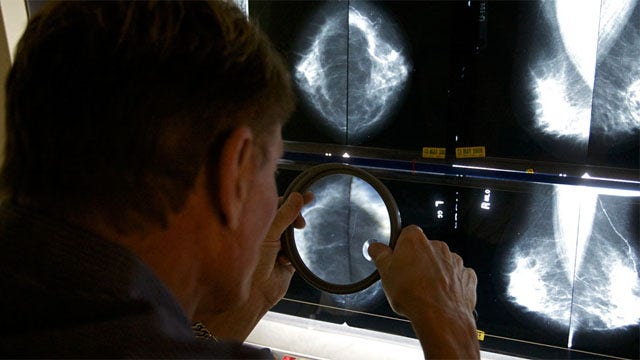According to two new studies, obesity increases the risk for breast cancer in post-menopausal Hispanic and African-American women.
The first study, from the Cancer Prevention Institute of California, analyzed 3,200 Hispanic women and found that those who gain weight through adulthood – especially after menopause – had a higher risk for estrogen receptor-negative and progesterone receptor-positive breast tumors.
The second study, from Rutgers Cancer Institute of New Jersey, analyzed 15,000 African American woman and found that overweight or obese, postmenopausal African American women had a 31 percent increased risk of estrogen receptor positive tumors.
How obesity, menopause, and breast cancer are related: Estrogen promotes the growth of breast cancers that are hormone receptor-positive. Estrogen levels are higher when there is more fat tissue in the body. Obese women over the age of 18, and especially between the ages of 50 and 60 – the age menopause occurs – are at a higher risk for breast cancer. This is because after menopause, the ovaries stop producing hormones. When this happens, fat cells become the source of most of the estrogen production in the body. More fat tissue means higher estrogen levels, and higher estrogen levels mean a higher risk of breast cancer. Obese women also have increased risk for breast cancer due to inflammation produced by fat cells.
According to the CDC, more than two-thirds of U.S. women are considered obese. African American women have the highest rates of obesity at 47.8 percent, followed by Hispanic women at 42.5 percent. This new research is important, not only for Hispanic and African American women, but for all women. We know that genetics and family history are major risk factors for developing breast cancer. Unfortunately, these risk factors are unavoidable. Now we have evidence that obesity is another major risk factor – a factor that can be avoided.
The current risk of breast cancer worldwide is about one million per year and is on the rise. The prevalence of obesity has more than doubled since the 1960s. With new evidence supporting the association between the two, women can take advantage by making an effort to lose weight and reduce their risk. Overweight people are 80 percent more likely to develop breast cancer. Therefore, losing the weight has a significant impact on reducing your risk.
A person’s body fat can be measured by their body mass index (BMI) which is based on a person’s height and weight. Being ‘overweight’ is defined as a BMI between 25 and 29.9 while being ‘obese’ is defined as a BMI of 30 or greater. Maintaining a BMI below 25 is essential to preventing future illnesses and diseases which can be irreversible and lead to death.
Some key tips to lose weight:
1. Focus on what you’re eating – 80 percent of weight loss is based on diet. Only 20 percent is related to exercise.
2. Exercise first thing in the morning – this will adjust your levels of leptin (a hormone responsible for the sensation of hunger).
3. Drink more water – you will be less hungry throughout the day.
If you still aren’t losing weight, you may have a thyroid problem. Make sure to have your healthcare provider check for this potential problem.









































